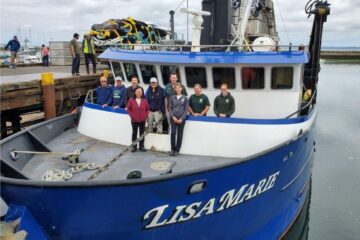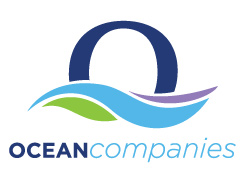
Fish meal plant eyes new odor control equipment
BY JACOB JONES – The Daily World
Thursday, May 22, 2008 11:05 AM PDT
The Ocean Protein fish meal plant in Hoquiam wants permission to install $750,000 in new
equipment and technology to control odor.
The company is asking the Olympic Regional Clean Air Agency for permission to extend the plant’s release stacks, add new fans and install an extra device to oxidize outgoing air. The project would cost about $750,000 and take two weeks to implement.
Hoquiam residents vented their frustrations as the company and air quality officials hosted a hearing Wednesday on the odor control proposals.
“I don’t care how high they shoot it,” said Marie Patterson of Hoquiam. “What goes up must come down.”
She complained that citizens had been promised improvements in the past that never
materialized. After suffering through year after year of odor problems, she was not convinced releasing the air higher would have any effect.
About 20 residents attended the meeting to ask ORCAA executive director Richard Stedman and others questions about accountability, current air standards and safety issues.
“We’re here to listen,” Stedman said. “This isn’t about putting our head in the sand.”
Mark Goodin, an engineer with the agency, said the three proposed changes are independent of the current odor controls already approved by the agency. They could be significant steps toward reducing odors released from the plant.
“How much?” he said. “We don’t know.”
Goodin ran a laser-pointer across diagrams of how the fans and oxidizing device would provide extra odor control. The fans would help draw in odors near the fish receiving area and clear outgoing vents. The oxidizing device, called an AirPhaser, uses a “non-thermal plasma process” to remove pollutants.
A couple residents asked about the small amount of ozone released during the oxidation process.
High concentrations of ozone at ground level can cause respiratory problems.
“Some residual ozone will be emitted,” Goodin explained, but the highest measurements would not exceed 1 part per billion. He said the emissions “will not come anywhere near” the safety standard of 75 parts per billion.
Goodin said the device will also automatically shut down if measurements inside the stack get too high.
Aaron Dierks, general manager for Ocean Protein, said the company has already spent about $4 million on odor control over the past three years. Extending the stacks 16 feet to the height of 80 feet, the limit of their permits, would also help dilute any odors.
Dierks said he has scouted several other plants and believes his plant was making progress.
The new devices and extended stacks are another step toward alleviating the smell from their processing.
“We’re the best fish meal plant in the world as far as odor technology,” he said.
Roger Milliman with the Grays Harbor Economic Development Council stepped forward to support the plant’s 60 employees and their latest efforts. Milliman said he was proud of the proactive steps the plant was taking to reduce odors.
“We ask that the public embrace them,” he said.
David Forbes of Hoquiam said he was disappointed more elected city officials had not attended to represent the public concerns and property interests.
“We have dollar investments in our community, too,” Forbes said.
Comments and questions wrapped up after a little more than an hour. Stedman, who is serving as the deciding hearing examiner, said it would take five to seven days to determine whether to approve the application for the additions.
Dierks said work to install the new devices and extend the stacks would begin immediately if approved.
“I think you’ll know right away if it’s working,” he said.


